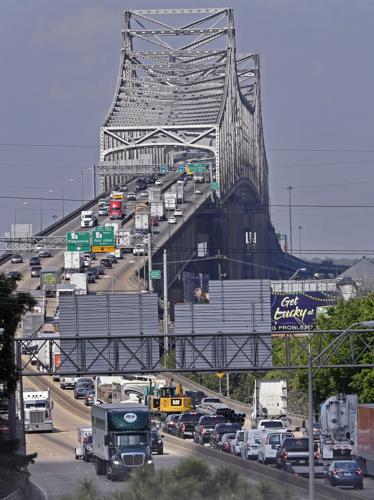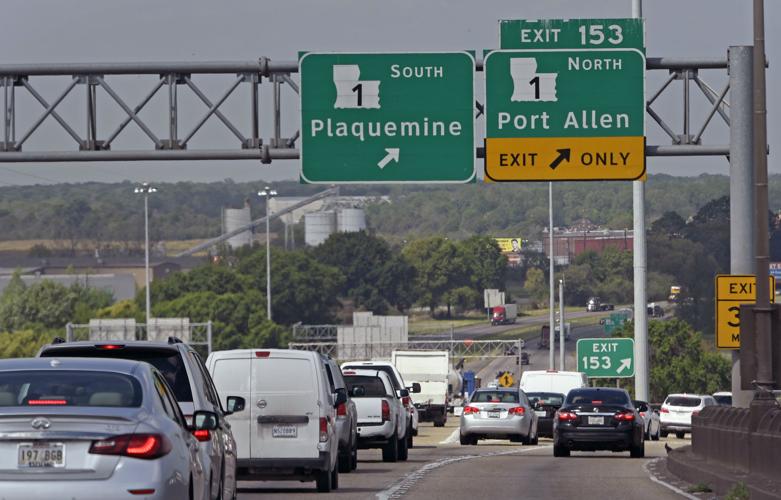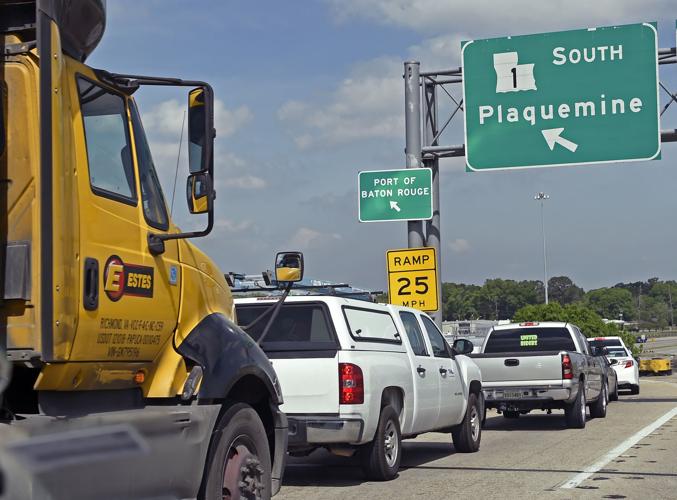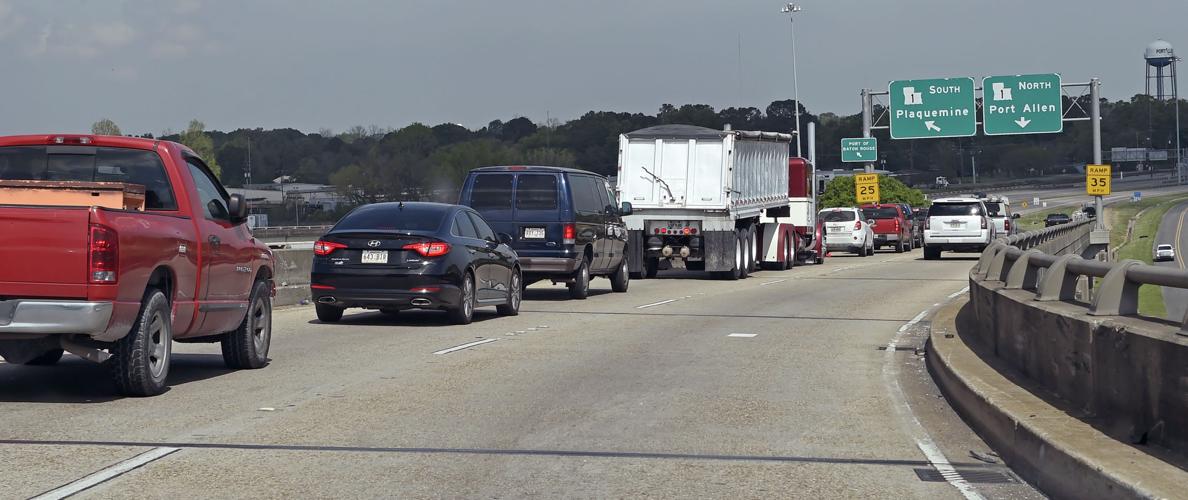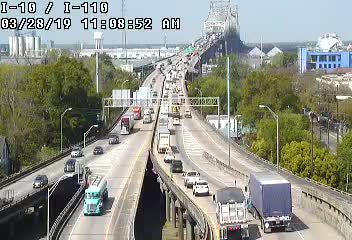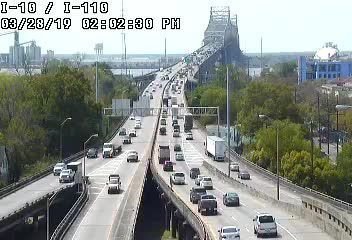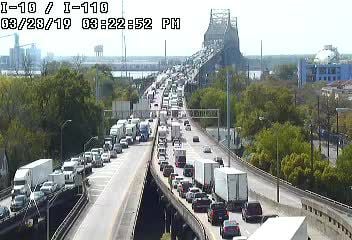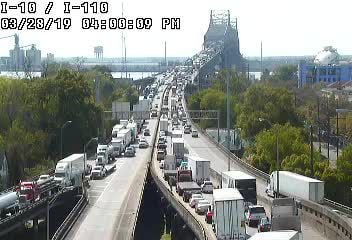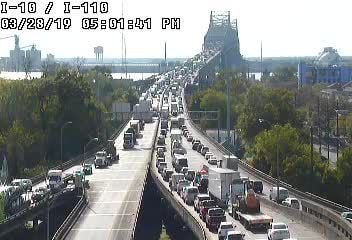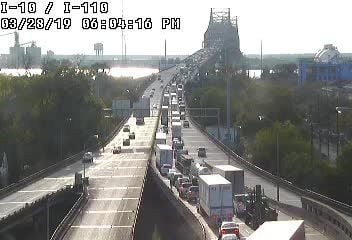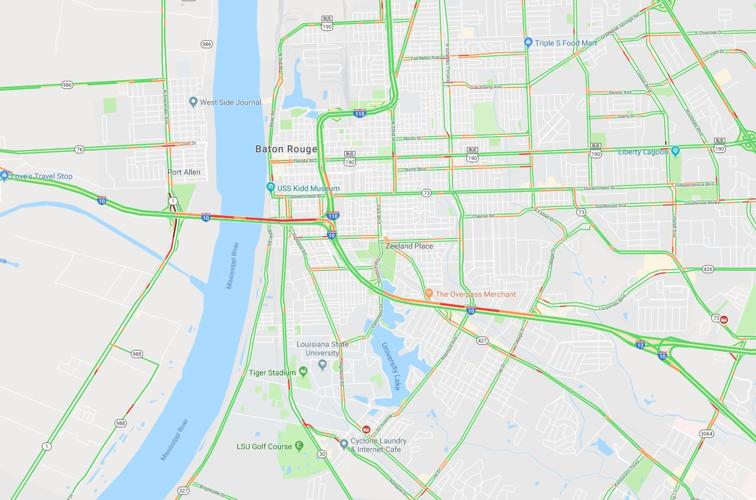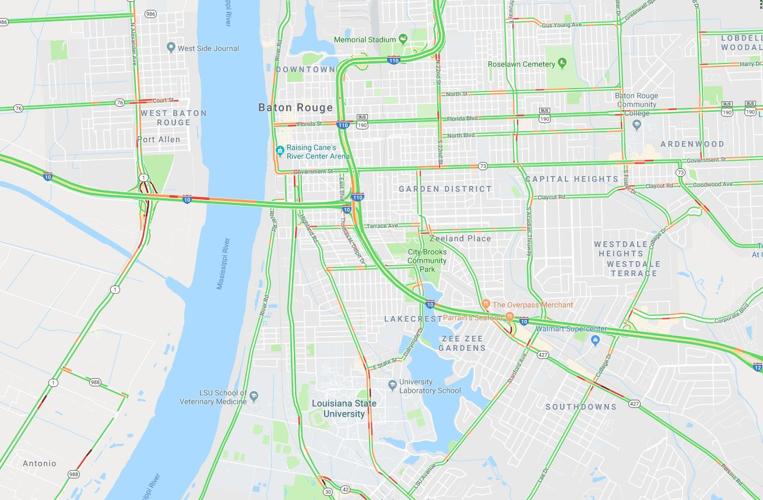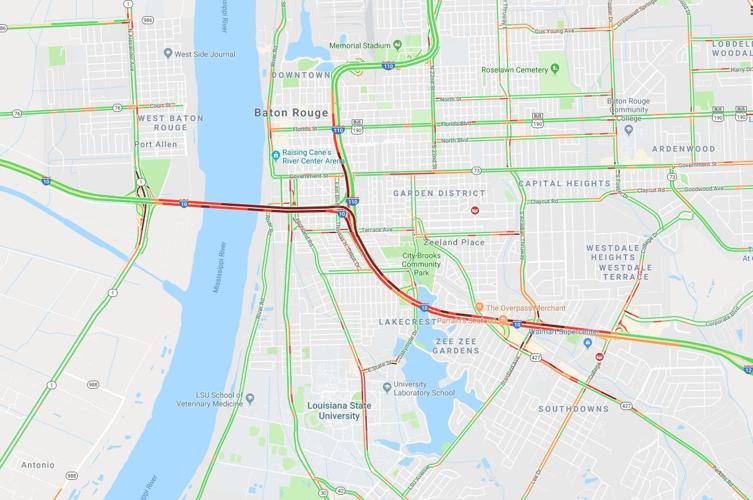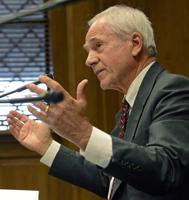While bridge repairs continued Thursday on the west side of the Mississippi River, motorists scrambled through another day of traffic gridlock that has spilled across the Baton Rouge area.
Commuter Lisa Johnson has been delayed as much as four hours from her job in Baton Rouge to her home in Plaquemine this week, and says it’s become more difficult to predict when delays will occur as the traffic issue is spiraling backups to outside of normal peak times.
“Since Monday it has taken me one to two hours to get across (the Interstate 10 bridge),” she said. “People are driving recklessly and trying to get ahead and it’s a real mess. My commute is normally 20 minutes without traffic.”
Restaurant owner offering discount to frustrated westside commuters: 'If the bridge is red, game on'
As the traffic approaching the Interstate 10 bridge starts to back up miles toward the east each afternoon on the overpass overhead, a downtow…
Late Thursday afternoon Google Maps said it would take 1 hour and 37 minutes to get from Siegen Lane to Port Allen — 80 minutes longer than normal on I-10 west.
Frustrated motorists fleeing interstates are finding surface streets jammed too.
Sen. Rick Ward III, R-Port Allen, said the latest problems in traffic-plagued Baton Rouge points up a fragile system, where a new problem means traveling goes from headache to chaos.
Can't see video below? Click here.
Acadian Ambulance is increasing its number of airlift transports because ground ambulances are increasingly not a viable option.
Spokesman Justin Cox said the company has not run its numbers, but he said anecdotally emergency responders are ordering more helicopter flights to area hospitals knowing the backups to hospitals will be exorbitant. “Quite frankly it has been to the point of being unbearable,” he said.
Acadian is screening calls more heavily attempting to strategically route ambulances to the nearest medical centers, but crews are increasingly running into literal roadblocks of drivers who will not move over for ambulances or who have driven onto the road’s shoulder in frustration.
Cox said there are usually ambulances staged on the westside in Port Allen, but Acadian has increased the number of units in the city as well as spread more to the south of the Intracoastal in Brusly and Addis.
Jason Hammack, the owner of Court Street Café in Port Allen, has scheduled additional time for the almost-daily catering deliveries his business carries out into Baton Rouge.
It took him 45 minutes to drive from Our Lady of the Lake Regional Medical Center back to Port Allen at 7 a.m. Thursday, he said.
“Any time I have to go anywhere near Baton Rouge now I pull out my Google Maps and see what the best route is, and how early I need to leave,” he said. “I’ve got other stuff to be doing so it affects my time and efficiency. It’s not necessarily DOTD’s fault, they’re playing with the hand they’ve been dealt but it’s the Legislature's fault and the governor’s fault.”
He said several of his employees who live in Baton Rouge or south of the Intracoastal have been as much as 90 minutes late for work this week, and in one instance his wife didn’t get home from their child’s baseball practice in Brusly until 9 p.m. one night this week — past bedtime and two hours after practice ended.
The traffic woes in Baton Rouge — worse than the typical delays — stem largely from two problems on the west side of the river, experts said.
One is a state project to reinforce joints on the half-century-old I-10 bridge over the Mississippi River, which is used by about 95,000 cars and trucks daily.
It should be finished in 3 to 4 weeks, Shawn Wilson, secretary for the state Department of Transportation and Development, said Thursday.
In addition, a truck earlier this month struck a girder under the bridge, closing one southbound lane on the Intracoastal Bridge.
The Louisiana Department of Transportation and Development will shift the lane configuration on La. 1 southbound as early as Monday as repairs…
Wilson said that repair should be finished before the end of next week, and provide traffic relief.
But for now backups on the bridge have triggered a new form of daily headaches on the east side of the river.
Westbound traffic headed for the bridge is routinely backed up to the Mall of Louisiana, and barely moving, around 6 p.m. on weekdays.
Mike Chustz, a spokesman for East Baton Rouge EMS, said traffic problems on I-10 west have been one of the biggest challenges ever. "We urge drivers to please be patient and courteous during this time and please yield immediately to emergency vehicles," Chustz said.
Travelers approaching the bridge from the north in the afternoon, often a speedy jaunt part of the way, are now slowed or even stopped not far from the Governor's Mansion.
The traffic mess has state lawmakers scurrying for answers to placate constituents.
Trade groups plan to push legislation that would boost Louisiana's gas tax by six cents per gallon initially, then another two cents a year in alternate years, officials said Thursday.
Ferry hours in Plaquemine will be increased in an attempt to assuage the sometimes hours-long traffic congestion plaguing the westside, state…
The increases, which face huge hurdles in an election year, would raise $180 million per year to start and another $60 million every other year for a decade — about $480 million in all.
The measure may be sponsored by state Rep. Steve Carter, R-Baton Rouge and is supported by the Louisiana Coalition to Fix Our Roads, which includes the Baton Rouge Area Chamber and roughly 75 other groups.
Backers said the money raised would be placed in a newly-created state fund that would limit spending to transportation only.
"The people of the state have voiced concerns about the condition of roads and bridges, whether they are in the big cities or rural areas," said former state Rep. Erich Ponti, executive director of the Louisiana Asphalt Pavement Association and one of the leaders of the group.
One year after a gas tax hike died in the Legislature, trade groups and others are kicking off a $500,000 campaign to force another legislativ…
The two-month legislative session starts on April 8.
Carter's bid in 2017 to boost the gas tax by 17 cents per gallon, in a non-election year, failed to even get a vote on the state House or Senate floor.
Wilson said while the goal is worthy, the increase could cause other state budget problems. "It is not an easy ask at any point in time," he said.
Gov. John Bel Edwards is running for re-election and would be wary of any increase that allows critics to paint him as a tax-and-spend Democrat.
Motorists pay 38.4 cents per gallon in Louisiana, including 20 cents in state charges.
The state tax has not changed since 1989 even while other states raised their own gas taxes. "It has been 30 years kicking the can down the road," Ponti said.
However, lawmakers from less congested parts of Louisiana are usually reluctant to support tax hikes sparked largely by complaints in Baton Rouge.
"When you start getting to the more rural areas that don't have traffic, it is hard to get a legislator to say, 'Yeah, it makes sense for me to ask for a 15 or 18 or 20-cent gas tax,'" Ward said.
Any tax increase requires two-thirds approval from the state House and Senate, a huge political hurdle in the best of times.
State Rep. Franklin Foil, R-Baton Rouge, said he hopes to revive an earlier plan to build an $800 million, high-speed toll road around Baton Rouge — the Baton Rouge Urban Renewal and Mobility Plan, or BUMP.
It would link interstates 10, 12 and 110 and U.S. Hwy. 61 and U.S. Hwy. 190 in a new path around Baton Rouge, possibly in five years.
Foil said he thinks private investors can be found to build the road, who would then be repaid, plus a profit, through toll and possibly other revenue generated by an "inner loop."
A bid by a giant engineering firm to build an $800 million, high-speed toll road around Baton Rouge was rejected Tuesday by a state panel.
The same idea was rejected in 2015 by a state panel amid concerns the project could cost taxpayers up to $400 million.
West Baton Rouge Parish officials drove home the importance of addressing the traffic crisis at its meeting Thursday evening, giving residents a glimmer of hope for the long-awaited La. 415 connector.
Parish public works director Kevin Durbin said the parish this week cut a check to the state for its portion of funding needed to start the surveying work that would move the La. 1 and La. 415 connector from preliminary planning to final planning. The project would give commuters an alternative north-south route along the heavily burdened Intracoastal canal, and would ease the burden on the I-10 westbound exit at Port Allen that’s caused miles-long backups this week.
But, Parish President Riley “Pee Wee” Berthelot warned, just because a project is in final planning stages does not mean it will be built. “It doesn’t matter if we have the plans, we need a way to pay for it,” he said.
The parish was awarded a $5.5 million grant in 2017 through the Capital Regional Planning Commission to move from preliminary to final plans on the $120 million project, but the final surveying work has been stalled for going on two years.

